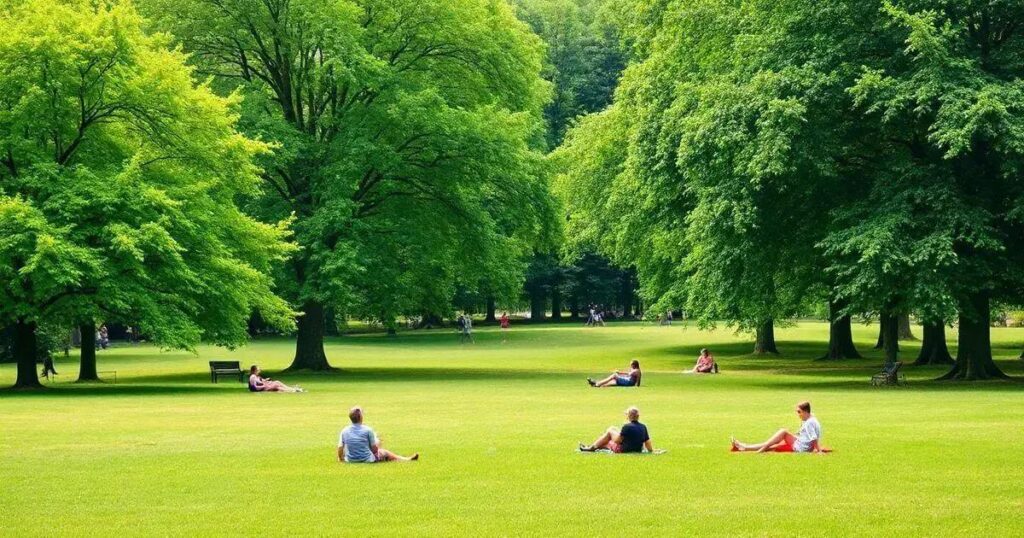Spending time in green spaces offers numerous benefits for relaxation, including reduced stress, improved mood, and enhanced creativity. Activities like walking, yoga, and mindful observation of nature can significantly boost mental well-being.
Have you ever wondered how the benefits of spending time in green spaces for relaxation can impact your mental health? Green spaces, such as parks and gardens, offer a sanctuary from the hustle and bustle of daily life. Not only do they provide a place to unwind, but they also enhance our overall well-being. In this article, we will explore the importance of green spaces, the psychological benefits they offer, and tips to make the most of these natural retreats.
Understanding Green Spaces
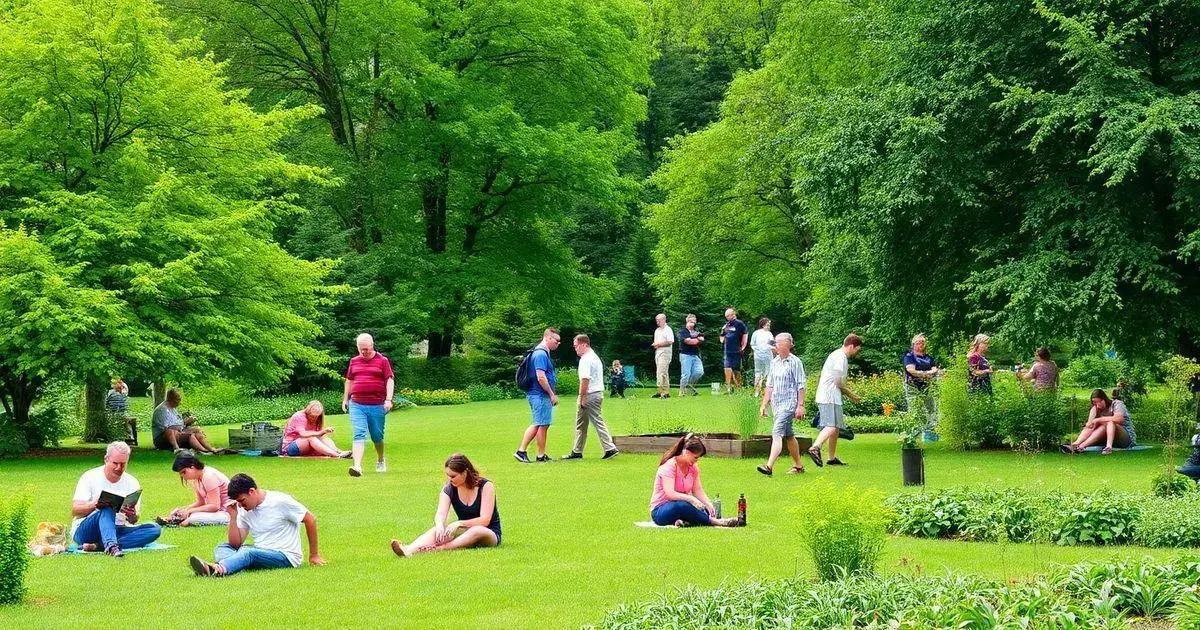
Green spaces refer to areas filled with vegetation, including parks, gardens, forests, and natural reserves. These spaces are vital in urban and rural environments, offering a natural refuge for people. When we talk about green spaces, we emphasize their importance in facilitating relaxation and promoting well-being.
Types of Green Spaces
Urban Parks: These are common in cities, providing a space for people to enjoy nature amidst the concrete. They often feature walking paths, benches, and playgrounds.
Community Gardens: These allow residents to grow food and flowers, fostering cooperation and a sense of belonging. They are often found in neighborhoods and schools.
Forests and Nature Reserves: These unspoiled areas offer trails for hiking and observing the local wildlife, providing a deeper connection to nature.
Each type of green space contributes uniquely to relaxation by giving us varied experiences in nature.
Why Green Spaces Matter
Access to green spaces is essential for public health and well-being. They help combat urban stress and promote physical activity. Nature provides a calm environment that can alleviate mental fatigue, making it easier for us to relax.
Additionally, these spaces support biodiversity, playing a crucial role in preserving wildlife habitats and improving air quality. When we engage with green areas, we foster a sense of community and connection with our surroundings.
Psychological Benefits of Nature
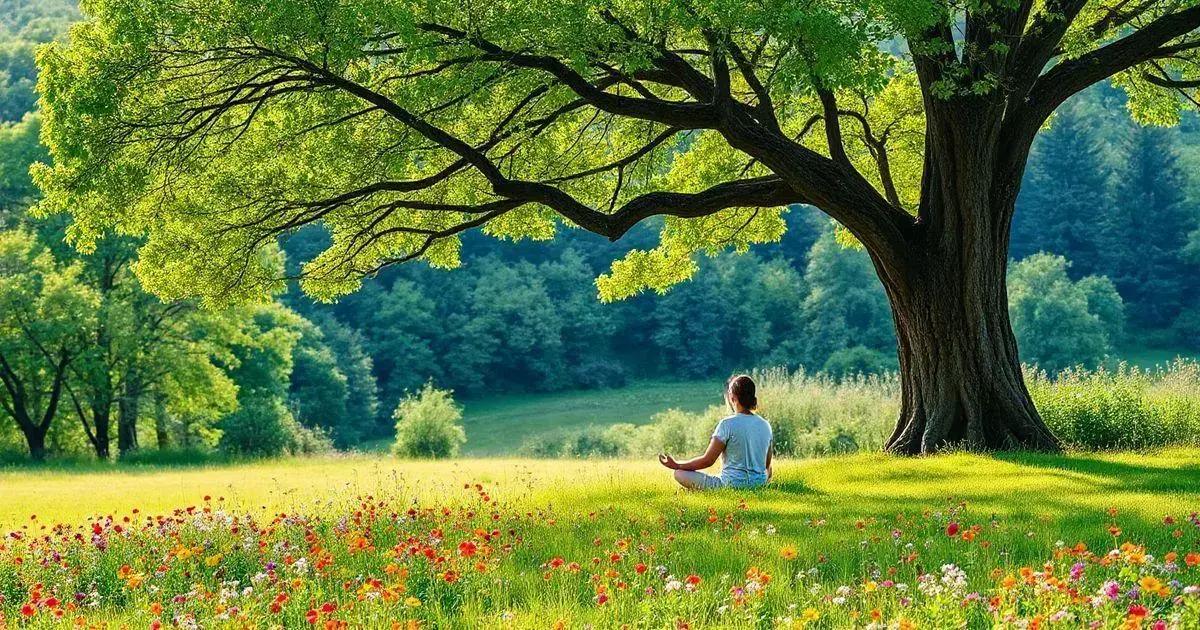
Spending time in nature has noticeable psychological benefits that can transform our mental health. Studies show that being in green spaces can reduce feelings of stress and anxiety. It allows for a break from the constant noise and chaos of daily life.
Improved Mood
Being outdoors in nature can significantly improve our mood. The natural environment provides a peaceful setting, encouraging feelings of happiness and contentment. Activities like walking through a park or sitting by a river can evoke a positive emotional response.
Boosted Creativity
Nature has a unique ability to enhance our creative thinking. The serenity and beauty of green spaces inspire new ideas and boost problem-solving skills. Many people report that spending time in nature helps them think outside the box.
Enhanced Focus and Attention
Nature provides a calming effect, which can improve our focus and attention span. This pause from constant distractions helps our brains recharge. Studies suggest that environments rich in nature can lead to better concentration and productivity.
Reduced Symptoms of Depression
Regular exposure to nature can lower symptoms of depression and anxiety disorders. Natural settings can offer a sense of tranquility and belonging, positively impacting mental health. Spending time outdoors can serve as a form of therapy, fostering connection with oneself and others.
The Role of Green Spaces in Stress Relief
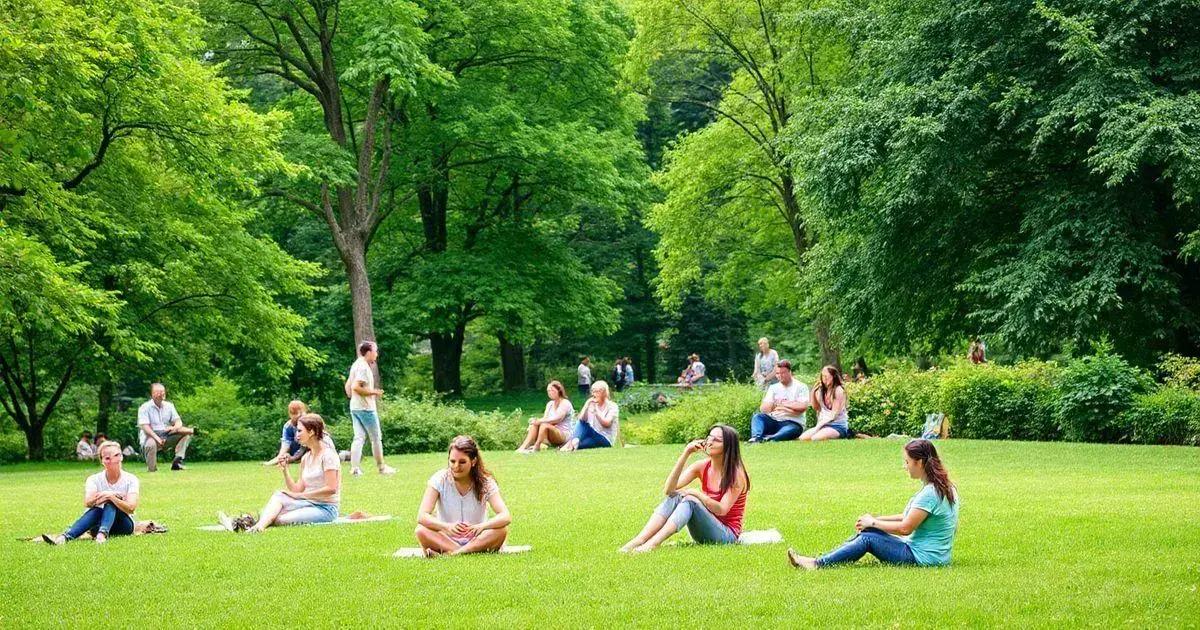
Green spaces play a vital role in providing stress relief. When we visit parks or gardens, we often feel our worries fade away. Being surrounded by nature helps us relax and recharge.
Nature as a Calming Influence
Time spent in natural settings offers a calming influence. The sights and sounds of nature, such as birds chirping or leaves rustling, can help lower our heart rates and reduce feelings of anxiety.
Physical Activity in Green Spaces
Engaging in physical activities like walking, jogging, or yoga in green spaces also promotes stress relief. These activities release endorphins, often referred to as “feel-good” hormones, which enhance our mood.
Connection to Nature
Connecting with nature can help us shift our focus away from daily stressors. Gazing at trees or flowers allows us to appreciate beauty and encourages mindfulness, which is known for reducing stress.
Social Interaction
Green spaces often serve as community hubs where people gather. Social interactions in these settings can foster connections and friendships, further decreasing feelings of isolation and stress. Sharing moments with friends or family outdoors enhances our overall sense of well-being.
Tips for Enjoying Green Spaces Effectively
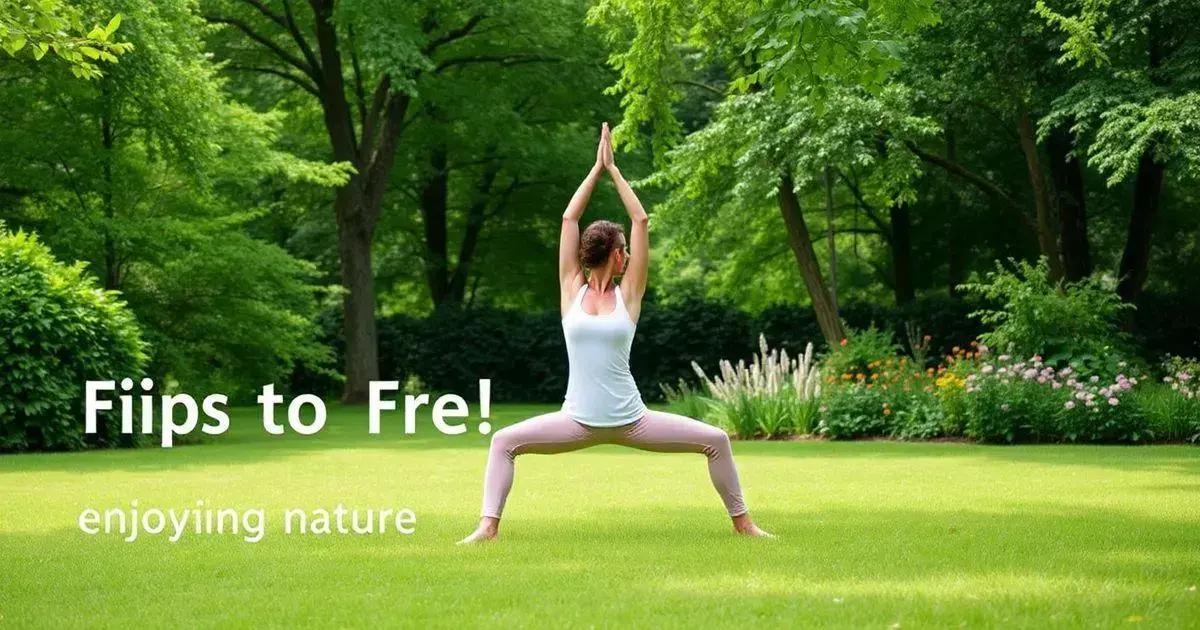
To enjoy green spaces effectively, consider these helpful tips that can enhance your experience and promote relaxation.
Choose the Right Time
Visiting green spaces during quiet times can help you experience peace. Early mornings or weekdays tend to have fewer crowds, allowing for a more relaxing atmosphere. Plan your visit to enjoy nature without distractions.
Engage in Mindful Activities
Practicing mindfulness while in nature can deepen your connection to the environment. Try activities like yoga, meditation, or simple breathing exercises. Focus on your surroundings—the colors, sounds, and scents—to enhance relaxation.
Bring Friends or Family
Sharing your time in green spaces with loved ones can elevate your experience. Engage in conversations, play games, or enjoy a picnic together. Socializing in nature offers both enjoyment and stress relief.
Explore Different Activities
Try various activities in green spaces, such as hiking, birdwatching, or gardening. Exploring different ways to connect with nature can keep your visits fresh and enjoyable. Experimenting with new activities can also lead to discovering hidden gems around your local park.
Disconnect from Technology
Consider leaving electronic devices at home or in your bag. Disconnecting from technology allows you to focus on the present moment, enhancing your appreciation for the natural world. Enjoy the sound of rustling leaves and the smell of fresh air without distractions.
Conteúdo não disponível
FAQ – Frequently Asked Questions about the Benefits of Spending Time in Green Spaces for Relaxation
What are green spaces?
Green spaces are areas filled with vegetation, such as parks, gardens, and forests, that provide a natural environment for relaxation and recreation.
How do green spaces contribute to relaxation?
Green spaces offer a calming atmosphere that helps reduce stress and anxiety, allowing individuals to unwind and rejuvenate their mental health.
What psychological benefits can I gain from spending time in nature?
Spending time in nature can improve mood, boost creativity, enhance focus and attention, and reduce symptoms of depression.
What activities can I do in green spaces to promote relaxation?
You can engage in activities like walking, jogging, yoga, picnicking, or simply sitting and meditating to enjoy the calming effects of green spaces.
When is the best time to visit green spaces?
Early mornings or weekdays are often the best times to visit green spaces, as they tend to be less crowded, providing a more peaceful experience.
How can I make the most of my time in green spaces?
Consider being mindful during your visit, engaging in physical activities, disconnecting from technology, and spending time with friends or family.

